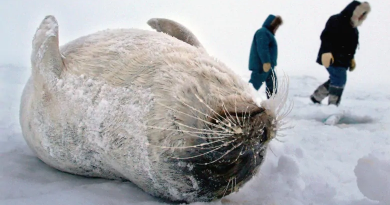3,000 seals killed by bird flu on Sweden’s West Coast

Up to 3,000 harbour seals along Sweden’s west coast may have been killed by bird flu, Swedish researchers fear.
Authorities first received reports of dead and dying seals along the coast in April, but by the time they reached the shore many of the seals had disappeared, Swedish Radio News reports. Scientists think this is because dead seals sink, rather than float on to the land.
Tests were carried out on some of the bodies that were recovered, and bird flu was determined as the cause of the mass deaths. At first scientists estimated that around 700 seals were hit by the epidemic, but they now believe as many as 3,000 animals could have been killed by the bug.
The area most hit by the outbreak was the southern part of the archipelago along the west coast, south of Gothenburg and towards Halland. More money has now been allocated to look into the deaths, and Swedish researchers are now in contact with their colleagues in Denmark and Germany to try to find out if it is a wider problem.
Related stories from around the North:
Canada: Fighting to protect bird habitat in North America’s boreal forest (SLIDESHOW), Eye on the Arctic
Finland: EU drops seal-protection complaint against Finland, Yle News
Sweden: Sweden’s mountain hares changing fur color too early, Radio Sweden
United States: Polar bears sniff pawprints to find clues about potential mates: study, Alaska Dispatch



